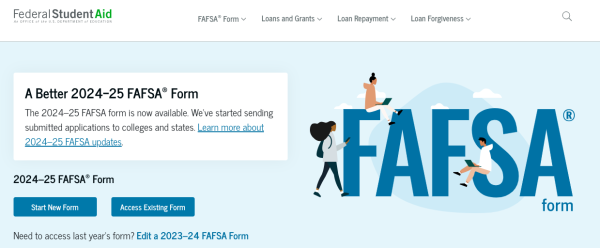Internships prepare students across campus for life after college
As the semester wears on, the time to start pursuing possible summer opportunities draws nearer. “Internships are an important part of the educational experience,” LaShone Manuel, a career coach in the Career Center, told Chimes. “They provide great real world experience and application of what you learn in class.”
The Career Center recommends beginning to look for internships 3 to 6 months before you intend to commence work, although “It really depends on what field you are going into,” Manuel said. “If you are looking in business you may want to look closer to start because they want someone to fill that right away, but for something in engineering you may want to start looking up to a year before you want the internship.”
Sophomore year is generally the time to begin internship searching, because “freshman year is much more about exploring and setting the tone for the rest of your education. That’s why most employers will include a sophomore or above stipulation,” Manuel said.
“How the internship looks will also depend on what major you are pursuing,” Manuel told Chimes. Department requirements for graduation might differ, and the jobs themselves are varied.
Education
In the education department, all students who hope to complete the program must complete two semester-long internships. The first internship consists of a weekly class and a part-time placement in a local classroom. The second is a full-time internship paired with a weekly seminar, as described by Jane Genzink, teacher internship coordinator.
“We are excited that this year our students who are placed in a Michigan public school classroom will be paid a stipend of $9,600 dollars,” Genzink said. This stipend was introduced to balance the workload associated with full-time teaching while completing the demands of life as a student. Currently, students placed in non-public schools do not qualify for the stipend.
Education interns have a unique position because, in most cases, the internship has to be done during the semester, while school is in session. “It can be difficult for our teacher interns to hold outside work during this semester,” Genzink said. “The stipend has reduced this strain for some of our students this year.”
These internships prepare students for the reality of the positions they want to hold in the future. “A common challenge is meeting the diverse needs of the students,” Genzink told Chimes. “As a beginning educator it can be particularly difficult, but as a program we work to support all our students through it.”
Education internships are necessary for teacher certifications because they provide evidence of the students’ readiness to work in the field. Education internships allow students to apply the skills they are learning in class as well as allow employers to find capable teachers to hire after graduation. “Many local and distant school communities look to Calvin for strong, well-prepared teacher candidates,” Genzink said.
English
Beginning in 2010, the English department has also required their students to complete an internship “because of the ways that the experience helps them discover job possibilities and to prepare for jobs after graduation,” English professor Donald Hettingatold Chimes. Most English students will work 8 to 10 hours a week in their internship while also completing an internship seminar.
“Internships empower students. That’s what’s so exciting about the class. English professors often say you can do anything with an English major, but this seminar really shows students how that is true,” Hettinga told Chimes.
Students who work at an internship learn just how valuable what they have learned in the classroom is —- both in courses for their major and otherwise. “They’re ready to hit the ground running to work in social media, event planning, … publishing and non-profit or business communication,” Hettinga told Chimes.
Engineering
“Engineering internships are highly recommended but not required,” Jessica Noble, engineering internship coordinator, told Chimes. The process begins with Engineering 295, which is designed to prepare students for landing an internship, according to Noble. Most engineering internships happen over the summer. “Most students start thinking about it sophmore year, then do the internship when they are a junior,” Noble told Chimes.
“The biggest benefit for students is application of what they are learning in class,” Noble said, though internships also provide the secondary benefit of allowing students to “[learn] what they don’t want to do in the workplace.” Students also gain networking opportunities for future jobs.
For students looking to start searching for an internship, Manuel recommends starting on Handshake or Interstride (for international students) and visiting the Career Center.
“Be intentional, put in the work and don’t settle for less!” Manuel said. “Don’t be afraid to communicate what you are looking for, whether that is a paid internship or one for international students. If you put in the effort, you can find what you’re looking for.”





